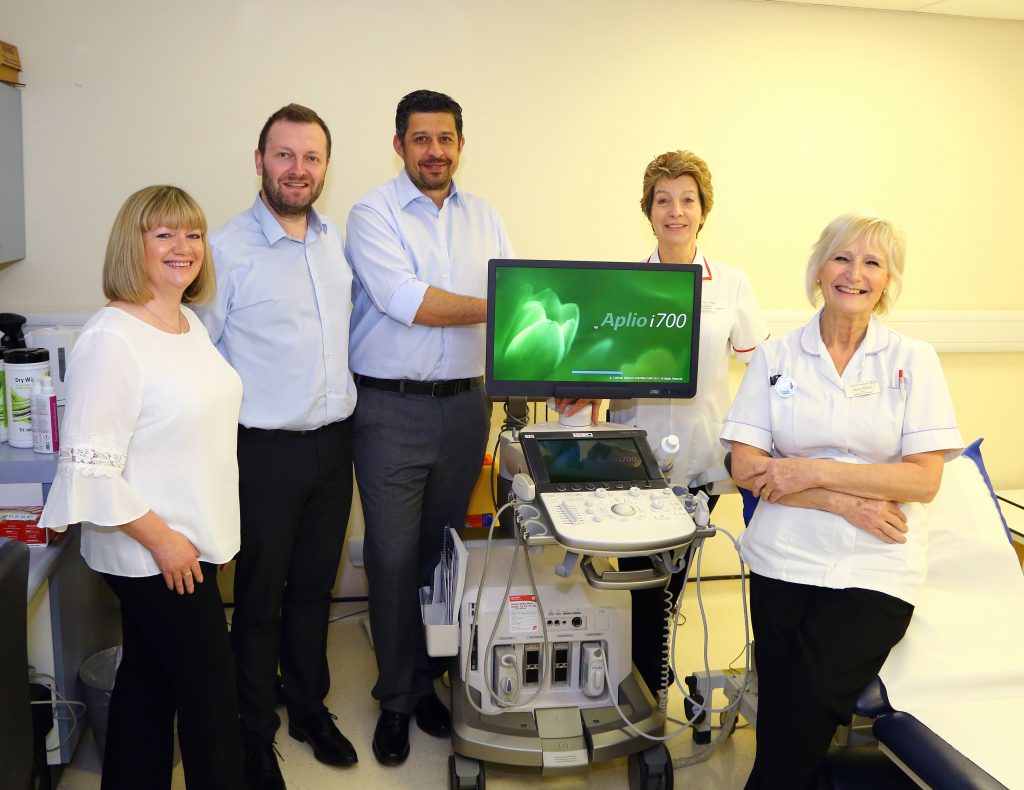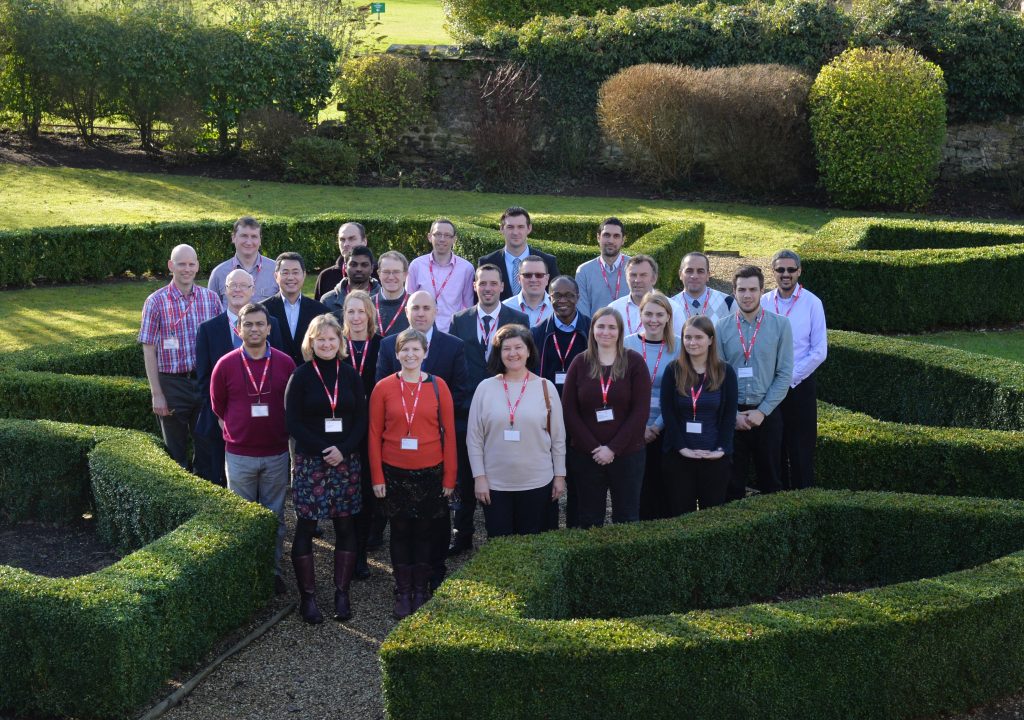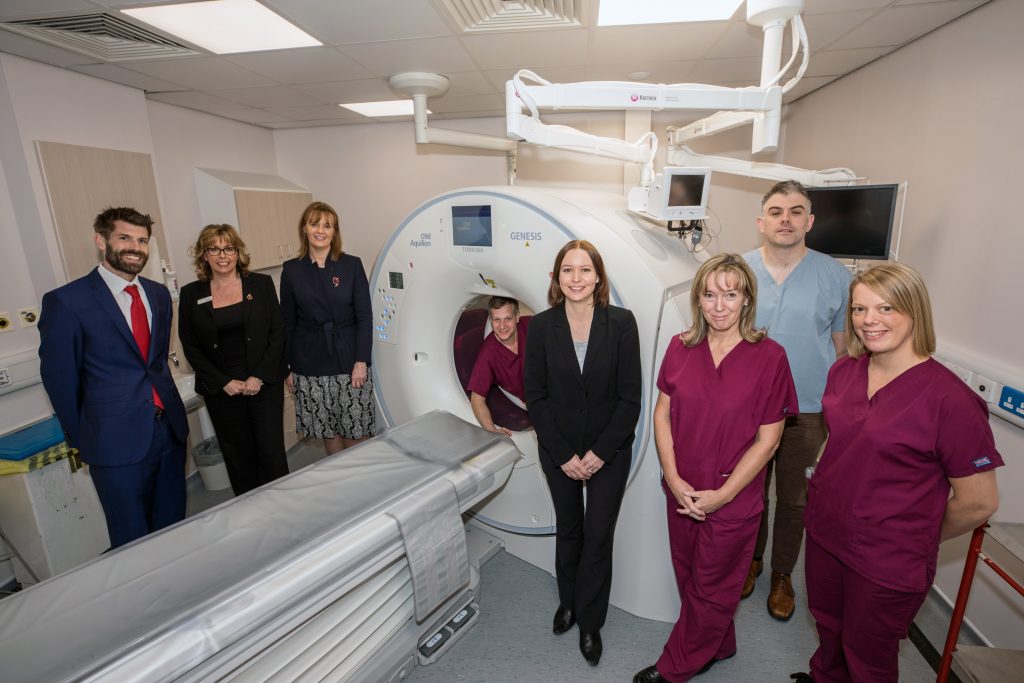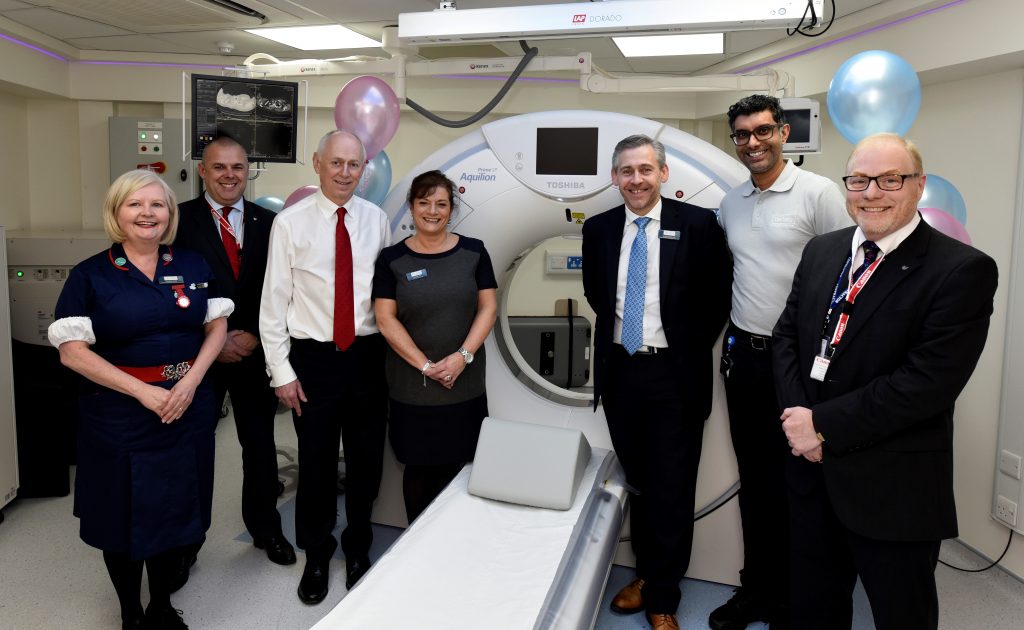Mark Hitchman, Managing Director at Canon Medical Systems UK
Improving the delivery of frontline diagnostic imaging services for the NHS and private healthcare providers is a priority to support the increasing number of patients coming through the doors. Quick and accurate scanning gives clinicians the information they need to make confident clinical decisions to send people into the correct treatment pathway. At the same time, energy consumption to power medical technology in imaging departments is the highest across the NHS estate1. This consumption is growing steadily accounting for over 50% of a hospital’s energy cost currently more than £400 million per year2. But what about the cost to our natural environment and climate?
NHS carbon emissions higher than Heathrow Airport
In 2012, the carbon dioxide (CO2) emissions attributable from NHS England were greater than the annual emissions from all aircraft departing from Heathrow Airport3. The same report detailed that in 2012/13, 59% of NHS carbon emissions were linked to procured goods whilst 24% to direct energy use in buildings and 17% to patient and staff travel.
The good news is that a concerted focus on carbon reduction in the UK as a whole – with the aim to reduce UK greenhouse gas by at least 80% by 2050 – has boosted awareness in all industries to innovate in tune with sustainability.
The latest NHS carbon footprint report4 by NHS England, published in January 2016 based on 2015 data, shows that the current NHS carbon footprint in England is 22.8 million tonnes of carbon dioxide equivalents (MtCO2e) and that between 2007 and 2015 the carbon footprint has reduced by 11%. It is great news that progress is being made and that the health of our planet is on the same agenda as improving the health of our nation.
However, CO2 in the earth’s atmosphere is still a critical problem with 2016 figures5 showing a record high. If it continues, it will lead to unpredictable changes in the global climate system such as higher temperatures, flooding and other extreme conditions that will have a knock-on effect to healthcare needs. Just because targets are in place and footprints are reducing it doesn’t mean awareness and initiatives should wane.
Canon Medical: the only UK medical equipment provider to be carbon neutral
In 2018, Canon Medical Systems UK was proud to announce a sustainable milestone offsetting 20,000 tonnes of CO2 from ultrasound, X-ray, CT or MRI systems installed into UK hospitals over the past 3.5 years. Achieving this carbon offset milestone meant that not only was it the only UK medical equipment provider to be a carbon neutral business meeting all PAS2060 requirements by the British Standards Institute, but also that the scheme had helped more than 22,000 people, including 12,000 children, in rural Uganda and Kenya. So, at the same time as our medical imaging innovations help UK patients, thousands of people are helped in developing nations. Canon Medical Systems is now working towards becoming a United Nations Sustainable Development Goals partner.
Our scheme works by calculating the carbon footprint of each Canon Medical Systems imaging product used in the daily prevention, diagnosis and treatment of patients in NHS and private hospitals. This considers the elements involved in manufacture, packaging, shipping and average energy usage for the standard lifetime of a system. Each month, UK sales figures are translated into tonnes of carbon and offset to a high impact project in a developing country to help to improve mortality, health, quality of life and female empowerment.
A sale in the UK helps to improve health and wellbeing in the developing nations
For example, a Canon Medical 3T MRI system has a carbon offset footprint of 306.31 tonnes which then helps 342 people in Kenya and Uganda via cooking stoves and water borehole projects. Cooking on open fires is a big health issue in developing nations with World Health Organisation figures stating that there are 3.8 million premature deaths per year from non-communicable diseases such as stroke, ischaemic heart disease, chronic obstructive pulmonary disease (COPD) and lung cancer6.
The Canon Medical Systems UK carbon offset scheme, managed by specialists CO2balance and monitored by the United Nations, provides 47 modern fuel-efficient stoves per 3T MRI system sold. This reduces the amount of smoke particles in a family home, the equivalent of 2 packets of inhaled cigarettes per day. The amount of firewood needed is also halved delivering further environmental and quality of life positives, such as time savings on wood collection so children do not miss school, and lessening deforestation benefitting wildlife habitats and flood prevention.
The same process is applied across the range of medical imaging technologies – a 1.5T MRI scanner sale offsets a carbon footprint of 226.78 tonnes going towards helping 254 people in rural villages; a CT scanner offsets 77.46 tonnes to help 87 people; an X-ray system offsets 81.33 tonnes to help 91 people; and every Ultrasound system is calculated to have a total footprint offset of 5.47 tonnes to positively impact 7 people in Africa.
Carbon offset is just one part of sustainable commitments
The long term quest in the R&D labs is to produce next generation medical imaging systems that consume less energy to therefore emit less CO2 plus cost less to run over their lifetimes. Our carbon offset initiative is a quick way to illustrate our ethics and ethos, but technical equipment innovation takes a bit more time.
We are proud to have made some inroads in this area and earlier this year our Aquilion ONE GENESIS CT Scanner was awarded Gold at the Green Apple Environmental Best Practice Awards, an annual international campaign to recogise, reward and promote environmental best practice around the world. The CT was recognised as smaller and lighter than its predecessors, thus requiring less power and is built to deliver lower levels of exposure dose to patients. It has been designed for an installation space of just 19m2 to reduce the need for hospitals to undertake costly and energy emitting renovations.
Our CT systems innovation also features advanced standby functionality to draw less energy when not in use, while also borrowing ideas from the world of Formula One racing, with Kinetic Energy Recovery Systems (KERS) applied to our gantry designs. When the gantry decelerates from spinning it recovers energy thus drawing less electricity to power its use.
Kyosei at the heart of our values
So why are we concerned about the natural environment and our contribution to its wellbeing? It’s not just about ticking the Corporate Social Responsiblity (CSR) box, it’s from a Canon company philosophy called ‘Kyosei’, a Japanese word that means living and working together for the common good. It has shaped our 80 year pedigree and our values; the way we treat people and conduct our business. It also means that we’re serious about taking responsibility for the impact of our activities, respecting our customers, plus the communities and countries we operate within, including our natural environment.
As we celebrate the 70th birthday of our treasured NHS, we feel putting heart and soul, ethics and ethos, into the future of medical imaging innovation is a long-term investment that our brand, our customers and the environment will all benefit from.










